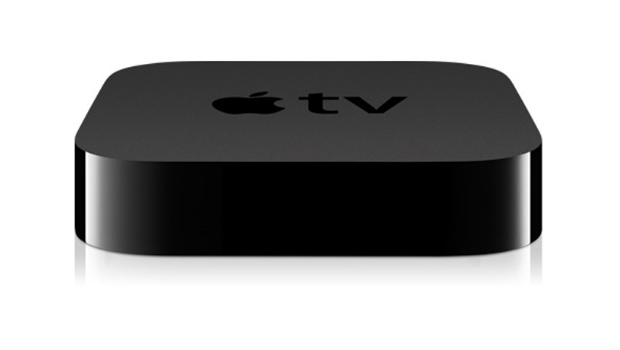Apple is gearing up to launch a revamped Apple TV in April, but will not push into the television market this year, according to reports.
The project to make Apple TV a comprehensive set-top box, perhaps sold to consumers, perhaps in bulk to cable providers, has been forced on Apple by cable companies’ and content makers’ unwillingness to cede control to the Cupertino, California, company, said Bloomberg and the Wall Street Journal.
That Apple is apparently not diving into the smart television market this year was also an indication that the company is leery of entering a space where margins are tight and sales have slowed.
“I am a little surprised that they’re not getting further into displays,” said Aram Sinnreich, a media professor at Rutgers University. “They own the supply chain, they essentially cornered the market on the rare earth elements needed for displays with the iPad, they have the factories, they have the design sensibilities. So to go for a set-top box instead is an interesting calculation. Maybe they were inspired by Google’s Chromecast, and believe an Apple TV would be a Trojan Horse into the living room for something more ambitious.”
Chromecast is a Google-designed hardware dongle that plugs into a television’s HDMI port and displays streaming media content from a tablet, smartphone or notebook PC. Google launched it in mid-2013.
Collaboration
Many investors and Apple observers – industry analysts and blogging pundits alike – have expected Apple to launch a branded smart television that makes it easier to find, select and pay for content. They have pinned such hopes on CEO Tim Cook’s repeated promises that Apple will enter new product categories, ones that would have the potential to increase revenue growth after Apple’s once-stratospheric gains became unsustainable.
The company’s overall strategy with the Apple TV also appears to be in flux, the Wall Street Journal reported, citing anonymous sources. Rather than promote the device as a competitor to cable companies’ offerings, Apple is now working on a more collaborative approach, offering the hardware while leaving the programming-rights fight up to cable companies, like Time Warner Cable and Comcast.
Those two companies, the biggest in the US, earlier this week struck a $45 billion deal whereby Comcast would acquire the smaller Time Warner Cable.
“Apple doesn’t have a lot of wriggle room,” said Sinnreich of Apple’s ability to squeeze out the cable companies, which have considerable political backing and don’t want a usurper like Apple to come between them and the content makers, the over-the-air, basic cable and premium cable channels that generate the shows people want to watch.
“Apple will have to show [the cable companies] that it doesn’t intend to compete them out of business,” Sinnreich said. “Everyone knows that disruption is coming, but the cable companies want the breathing room to disrupt themselves.”
The ultimate goal of smart TV – the ability to call up any program at any time, perhaps paying for each program separately rather than have to subscribe to a broad swath of content – is targeted advertising, said Sinnreich.
“The Holy Grail is advertising that knows who is in the living room and what they want, then provides them with information for buying,” said Sinnreich. “Those are the missing pieces that the cable companies don’t have.”
Technology companies like Apple, Google and Microsoft do have those pieces, or at least some of them. “Apple, and others, have a tremendous IP [intellectual property], with lots of patents,” said Sinnreich, which could come into play when providers like Comcast try to identify consumers for targeted ads. That plays in Apple’s favour.
“Maybe what we’ll see is an unholy alliance between technology companies and the cable companies,” said Sinnreich, “that over the next five to 10 years pools their assets.”
If Apple goes the set-top box route for Apple TV, it means it’s decided that selling premium hardware, its modus operandi, is the best shot.
“Comcast has the upper hand,” Sinnreich argued. “Apple is taking a gamble with this, unless they are able to strike some revenue-sharing deal where they share consumer data and revenue from targeted video ads.” Sans such deals, Sinnreich believed Apple could be locked out from the most lucrative parts of the content ecosystem.
“The question is who’s going to be providing the link from the channel to the living room, and how it will be monetised,” said Sinnreich. “So maybe Apple will retrench [its plans] and do what it does best, make awesome devices with a high profit margin.”







Subscribers 0
Fans 0
Followers 0
Followers